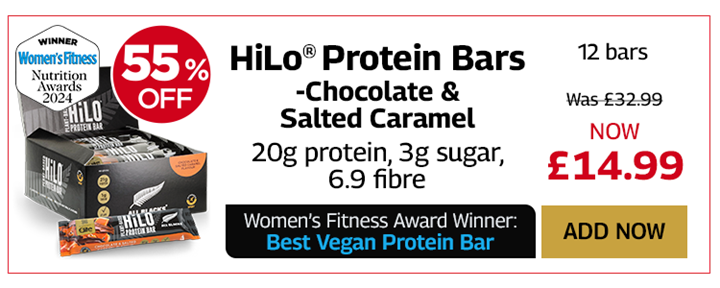Nigel Mitchell worked for 12 years as Head of Nutrition at British Cycling, while Rob Hobson is a SENR-registered sports nutritionist and founder of nutrition consultancy RH Nutrition. Here they outline how proper nutrition can help endurance athletes such as cyclists and swimmers stay well and keep training through the winter.
🕒 4 min read
As we approach winter and are faced with cold and wet conditions, everyone is more prone to infections, in particular chest infections.
Our bodies are constantly under attack from bacteria and viruses; cyclists, for example, are susceptible to infections for reasons such as increased exposure, hygiene (spray from the road), close contact riding in a group with people coughing and sneezing, hostile environments, and stressed immune systems.
One way to reduce the chances of getting ill is to optimise your nutrition.
"Cold viruses are more likely to impact athletes during the winter months as we all move inside and transmission risk is higher. We encourage athletes to use simple measures that can help to reduce this risk including sticking to good hand hygiene, avoiding obviously unwell people and using a mask if it's not possible to distance at times where we know the infection risk is higher (such as on public transport).
"We encourage good basic health including focussing on sleep, recovery and a healthy diet and also use some additional measures such as vitamin d, zinc and vitamin c supplements that are known to improve immune function, with higher doses used if there are any signs of illness."
Kate Jordan, Aquatics GB Chief Medical Officer
Energy
Immune cells rely heavily on carbohydrates for energy, which can be quickly depleted during prolonged exercise. Cyclists, for example, need to make sure they don't ride for longer than about 45 minutes without taking in some carbohydrate.
Competitive swimmers, meanwhile, should regularly take in carbohydrates to prevent glycogen depletion and support immune function – especially during training sessions lasting 1-2 hours.
Carbohydrate intake could be in the form of an energy gel, energy drink, a bar or even a banana.
"To maintain energy and support immune function, athletes should consume 30-60 grams of carbohydrates per hour during exercise lasting over 60 minutes, as recommended by the International Society of Sports Nutrition (ISSN) and the American College of Sports Medicine (ACSM). Carbohydrates can be consumed through energy gels, drinks, bars, or whole foods that are easily digested like bananas, dried fruit and even boiled potatoes."
Sports Nutritionist Rob Hobson
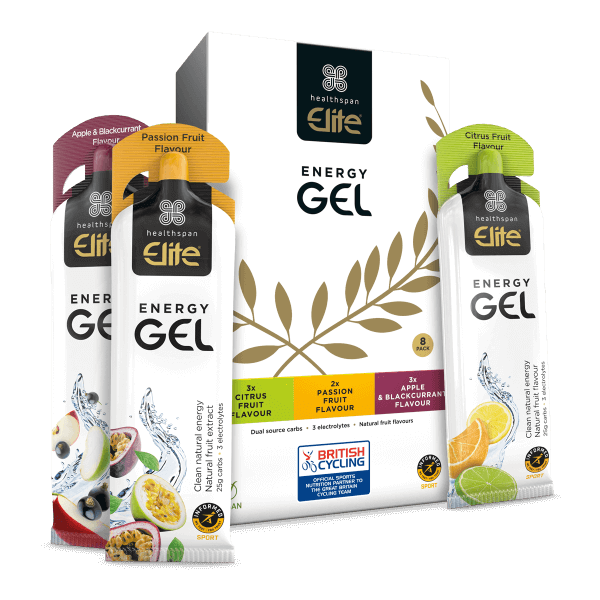
Energy Gel – Mixed Pack
Carb and electrolyte boost developed with British Cycling
- Delivers fast-acting energy
- 25g fast-acting carbs and 3 electrolytes
- Apple & Blackcurrant, Citrus Fruit and Passion Fruit flavours
Post-exercise recovery
Following a long hard session, recovery nutrition is not only important for muscle repair, but also to support the immune system.
Ideally this should be about 20-30g of protein and about 60g of carbohydrate, depending on how hard the session was. This helps replenish glycogen stores, repair muscles, and boost immune recovery.
An effective meal could be a three-egg omelette, spinach and a few slices of home-made sourdough bread. A plant-based option could be to swap out the omelette for scrambled tofu, but a lot of people like to use a recovery drink. These are convenient and let you know exactly how much of each nutrient you are consuming.
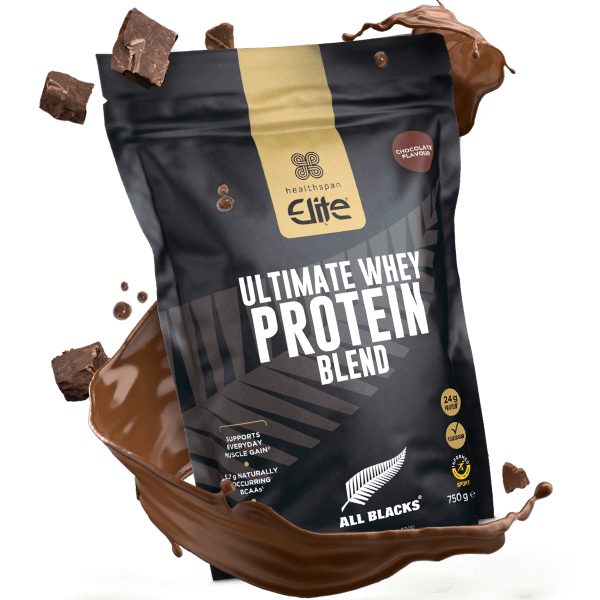
All Blacks Ultimate Whey Protein Blend
Protein powder co-created with the All Blacks
- 24g protein per serving to support muscle growth
- Added protease to break down protein for better absorption
- Available in vanilla, strawberry and chocolate. Low in sugar
Protein
This plays an important role in the immune system as it is used both structurally and functionally within immune cells. Amino acid glutamine is an important energy source for immune cells. Most people's diets provide adequate glutamine, but some people find supplements helpful.
Pre- and Probiotics
Good gut function and health are key to good immunity, and nutrition is central to a healthy gut. Our understanding of the role of probiotics (helpful gut bacteria) and prebiotics (food for the probiotics) is increasing all the time.
Having the right balance of gut bacteria supports immune function. A varied diet including live cultures such as live yoghurt and fermented foods, along with whole high-fibre foods, helps to promote a healthy immunity-supporting gut.
Probiotic supplements can also help keep the digestive system in prime condition to support your immunity.
Zinc lozenges
These have become very popular with athletes. If used at the first sign of symptoms they can reduce both the severity and duration of a cold, according to a Cochrane review. Zinc acetate lozenges seem to slow down how quickly viruses can reproduce. They also enhance the activity of white blood cells in the throat, helping to alleviate common cold symptoms.
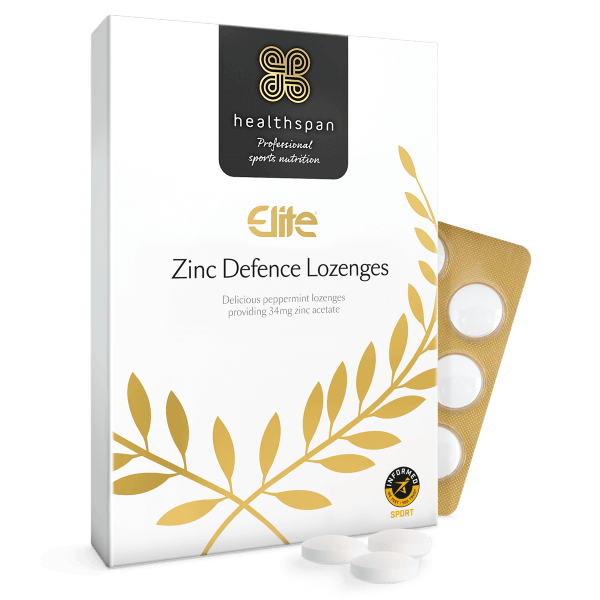
Zinc Defence Lozenges
Take at the first sign of cold and flu
- Throat lozenges with zinc to defend your immune health
- Coats the membranes of nose and throat when taken at the first sign of cold and flu
Omega 3s
These fatty acids play many important roles in the body, one of which is as part of the immune system: acting as a communicator between immune cells and influencing inflammation in the body.
Foods such as oily fish and some seeds and nuts are great sources of omega 3s. However, it can be a challenge to consistently eat omega 3s in sufficient quantities, which is where omega 3 supplements can be useful. Vegan omega-3 supplements are available for those on plant-based diets.
Vitamin D
Vitamin D is not just for muscle and bone health; it's also vital for immunity. In the winter months, exposure to sunlight decreases, with a corresponding effect on vitamin D levels. The NHS recommends taking vitamin D supplements from October to April.
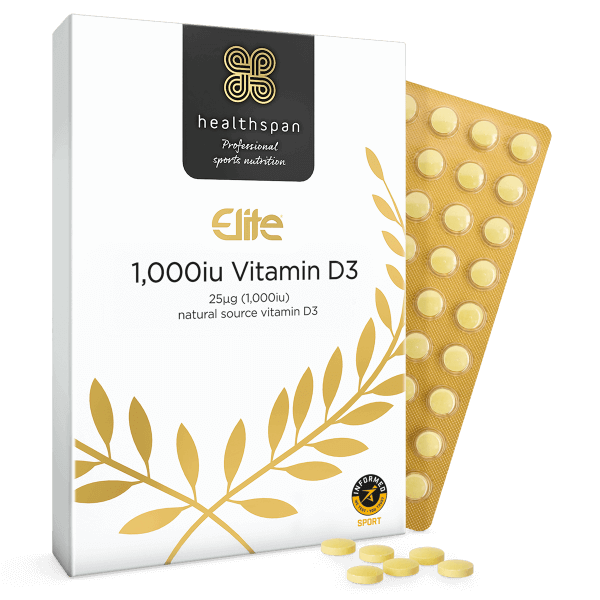
Elite Vitamin D3 1000iu
1,000iu natural source Vitamin D3 to support immunity, muscles & bones
- Supports your immune, muscle and bone health
- 1000iu (25mcg) of vitamin D3, the body-ready form
- One-a-day formulation, suitable for vegetarians
One to watch: polyphenols
We're just starting to understand the positive impact of these nutrients on health. Polyphenols are found in brightly coloured fruit and vegetables; great examples include tart cherry juice and turmeric.
And to avoid: ultra-processed foods (UPFs)
These do not provide any additional nutrition apart from energy, and contain chemicals that are not found naturally in foods. By trying to avoid UPFs and eating whole foods, you will increase the nutrient variation and density in your diet, which underpins immune function.
Diet and nutrition play an important role in supporting and promoting our immune system. By taking care of what we eat we can provide our bodies with all the key nutrients required.
For some people, using a nutritional supplement can provide the little extra they require or give confidence that they're eating enough of a particular nutrient. Healthspan Elite provides high-quality products that are rigorously tested for quality, efficacy and to reduce the risk of contamination with substances banned for competing athletes.
